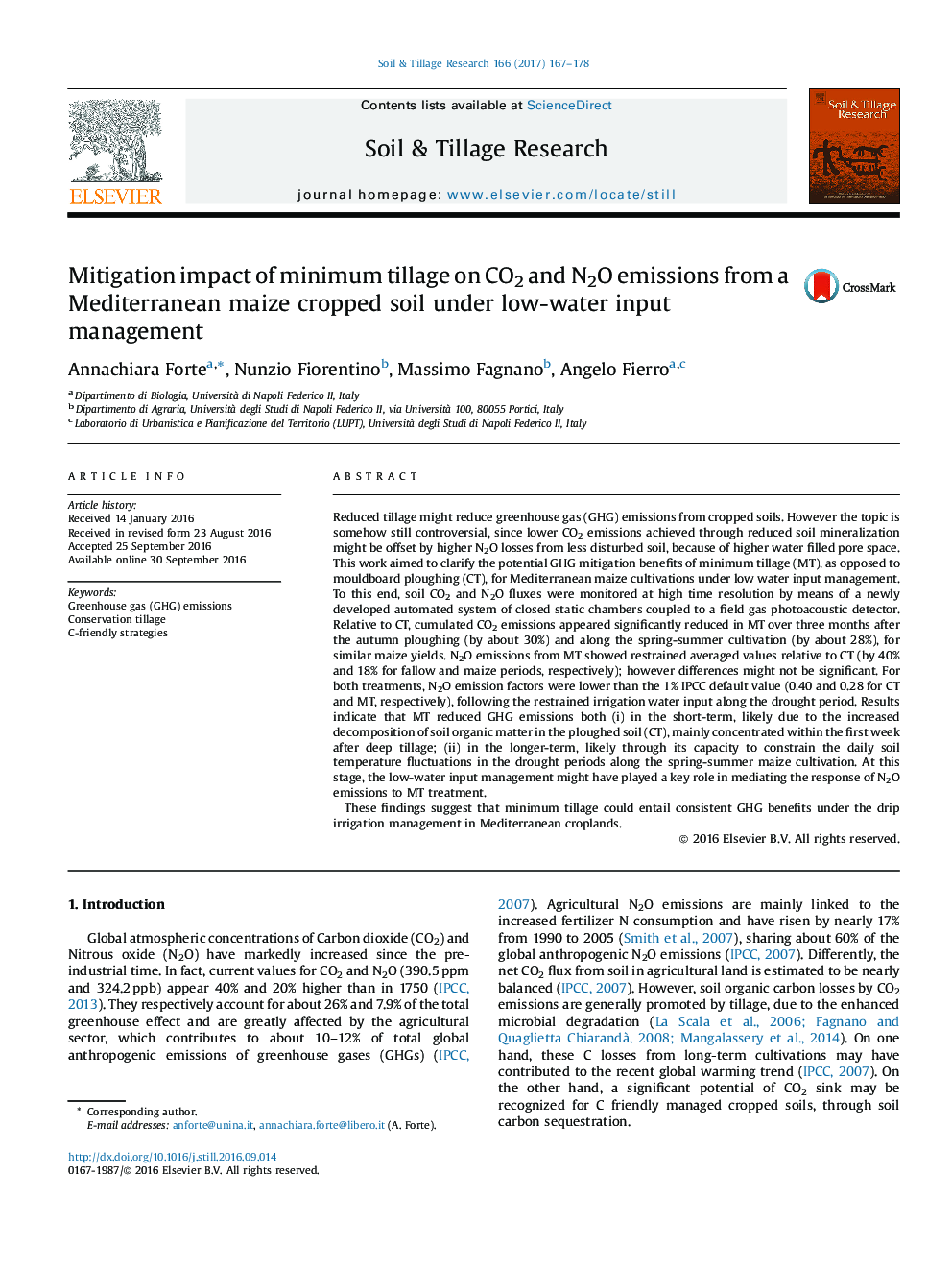| کد مقاله | کد نشریه | سال انتشار | مقاله انگلیسی | نسخه تمام متن |
|---|---|---|---|---|
| 4927620 | 1431837 | 2017 | 12 صفحه PDF | دانلود رایگان |

- Minimum tillage (MT) can reduce greenhouse gas (GHG) emissions from cropped soils.
- MT potential for GHG mitigation still needs to be clarified for dry/warm conditions.
- Soil GHG fluxes were recorded in drip irrigated maize under MT in Southern Italy.
- At similar crop yields, GHG fluxes were lower in MT than in the conventional trial.
- MT resulted a viable mitigating tool for Mediterranean crops under low-water input.
Reduced tillage might reduce greenhouse gas (GHG) emissions from cropped soils. However the topic is somehow still controversial, since lower CO2 emissions achieved through reduced soil mineralization might be offset by higher N2O losses from less disturbed soil, because of higher water filled pore space. This work aimed to clarify the potential GHG mitigation benefits of minimum tillage (MT), as opposed to mouldboard ploughing (CT), for Mediterranean maize cultivations under low water input management. To this end, soil CO2 and N2O fluxes were monitored at high time resolution by means of a newly developed automated system of closed static chambers coupled to a field gas photoacoustic detector. Relative to CT, cumulated CO2 emissions appeared significantly reduced in MT over three months after the autumn ploughing (by about 30%) and along the spring-summer cultivation (by about 28%), for similar maize yields. N2O emissions from MT showed restrained averaged values relative to CT (by 40% and 18% for fallow and maize periods, respectively); however differences might not be significant. For both treatments, N2O emission factors were lower than the 1% IPCC default value (0.40 and 0.28 for CT and MT, respectively), following the restrained irrigation water input along the drought period. Results indicate that MT reduced GHG emissions both (i) in the short-term, likely due to the increased decomposition of soil organic matter in the ploughed soil (CT), mainly concentrated within the first week after deep tillage; (ii) in the longer-term, likely through its capacity to constrain the daily soil temperature fluctuations in the drought periods along the spring-summer maize cultivation. At this stage, the low-water input management might have played a key role in mediating the response of N2O emissions to MT treatment.These findings suggest that minimum tillage could entail consistent GHG benefits under the drip irrigation management in Mediterranean croplands.
Journal: Soil and Tillage Research - Volume 166, March 2017, Pages 167-178